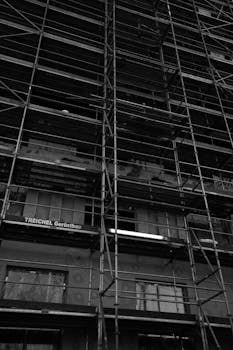
**
Tata Steel and InQuik Partner to Revolutionize Infrastructure: Modular Steel Bridges for Faster, Cheaper Construction
The construction industry is undergoing a significant transformation, driven by the need for faster, more efficient, and cost-effective solutions. Tata Steel, a leading steel producer, and InQuik, a pioneer in modular construction, have joined forces to address this need with a groundbreaking initiative: the development and deployment of modular steel bridges. This innovative partnership promises to revolutionize bridge construction in India and beyond, impacting everything from rural connectivity to major urban infrastructure projects.
A Game-Changer in Bridge Construction: Modular Steel Bridges
Traditional bridge construction is known for its lengthy timelines, high costs, and susceptibility to delays due to unforeseen circumstances. This partnership aims to disrupt this paradigm through the utilization of prefabricated, modular steel bridge components. These components, manufactured by Tata Steel using advanced steel technology, are designed for easy assembly on-site, significantly reducing construction time and labor costs.
Key Advantages of Modular Steel Bridges:
- Reduced Construction Time: Prefabrication allows for parallel construction activities, drastically shortening project timelines compared to conventional methods. This translates to quicker access to crucial infrastructure, especially in remote areas.
- Lower Costs: The efficiency gained through modular construction leads to substantial cost savings. Reduced labor, material waste, and project delays contribute to a more economical approach.
- Enhanced Quality Control: Manufacturing components in a controlled factory environment ensures higher quality and precision, minimizing errors and rework on-site.
- Improved Durability and Strength: Tata Steel's high-quality steel guarantees superior strength and longevity, ensuring the bridges withstand heavy loads and harsh weather conditions.
- Sustainable Construction: Modular construction often minimizes waste and environmental impact compared to traditional methods. The use of recyclable steel further enhances its sustainability.
- Faster Deployment: Especially crucial in emergency situations, the rapid assembly capability of modular bridges enables quicker restoration of connectivity after natural disasters.
Tata Steel's Role: Providing Superior Steel for Modular Construction
Tata Steel's contribution extends beyond simply providing steel. Their expertise in advanced steel manufacturing, including high-strength low-alloy (HSLA) steel and weathering steel, ensures the bridge components possess the necessary durability and longevity to withstand various environmental factors and traffic loads. This is critical for the long-term performance and safety of the modular bridges.
InQuik's Expertise: Modular Design and Assembly
InQuik's specialization lies in the design, engineering, and assembly of modular structures. Their expertise in optimizing designs for prefabrication and efficient on-site assembly is crucial for the success of this partnership. They are responsible for creating the modular designs and overseeing the assembly process, ensuring seamless integration of Tata Steel's high-quality steel components.
Technological advancements in Steel Bridge Construction:
- Advanced Steel Grades: The use of advanced steel grades like HSLA and weathering steel ensures superior strength and corrosion resistance, extending the lifespan of the bridges.
- Digital Design and Fabrication: Cutting-edge technologies like Building Information Modeling (BIM) and digital fabrication are employed to optimize the design and manufacturing processes.
- Optimized Logistics: Efficient logistics and transportation planning are essential for timely delivery of components to the construction site.
Impact on Infrastructure Development in India and Beyond
This partnership has significant implications for infrastructure development in India and globally. The potential applications of modular steel bridges are vast, including:
- Rural Connectivity: Bridging gaps in rural connectivity by providing quick and affordable access to remote communities.
- Urban Transportation: Improving urban transportation networks by building efficient and aesthetically pleasing bridges.
- Disaster Relief: Rapid deployment of temporary or permanent bridges in disaster-stricken areas.
- Industrial Infrastructure: Supporting industrial development by providing reliable access to industrial sites.
- Railway Overpasses and Underpasses: Reducing traffic congestion and improving safety with efficient railway infrastructure.
The Future of Bridge Construction: A Collaborative Approach
The collaboration between Tata Steel and InQuik signifies a paradigm shift in the construction industry. This partnership showcases the power of collaboration and the adoption of innovative technologies to create more efficient and sustainable solutions. It serves as a model for future infrastructure projects, promising to transform how bridges are designed, constructed, and deployed, leading to improved connectivity, reduced costs, and enhanced sustainability. The future of bridge construction is undoubtedly modular, and this partnership is at the forefront of this exciting development. The success of this initiative will likely lead to further innovations in modular construction, impacting various other sectors and contributing to a more efficient and sustainable built environment. This is a significant step towards building a more robust and resilient infrastructure for the future.




















